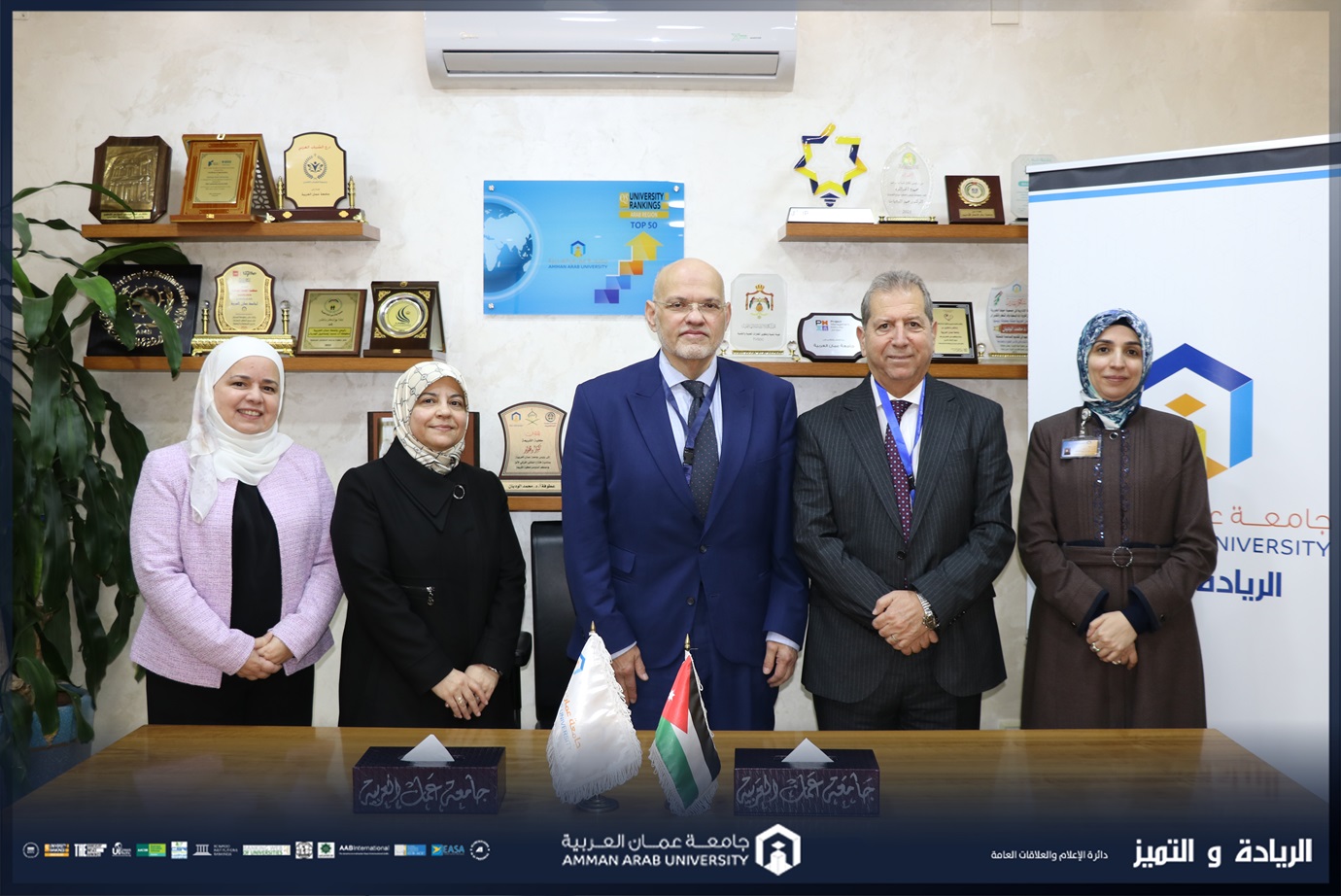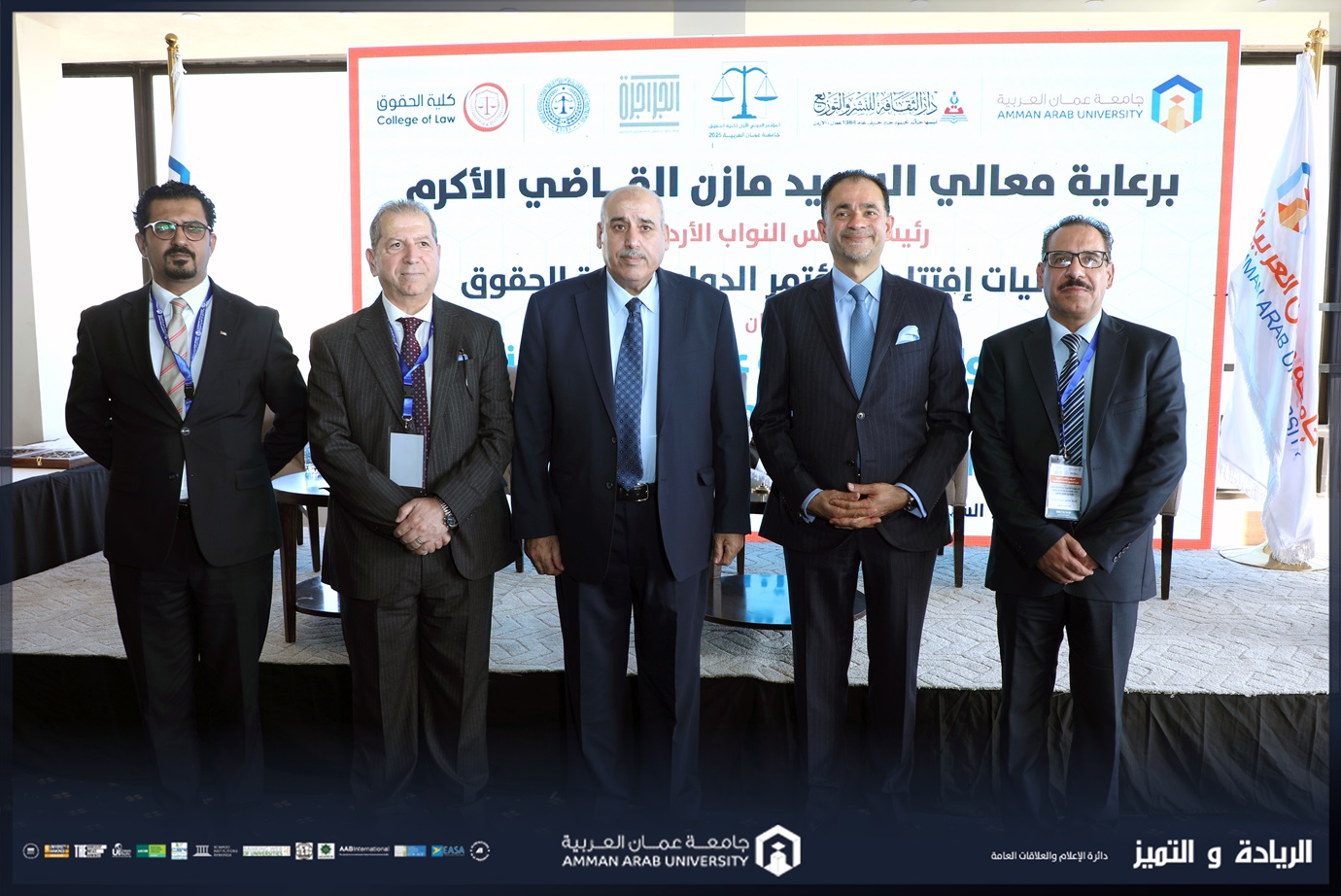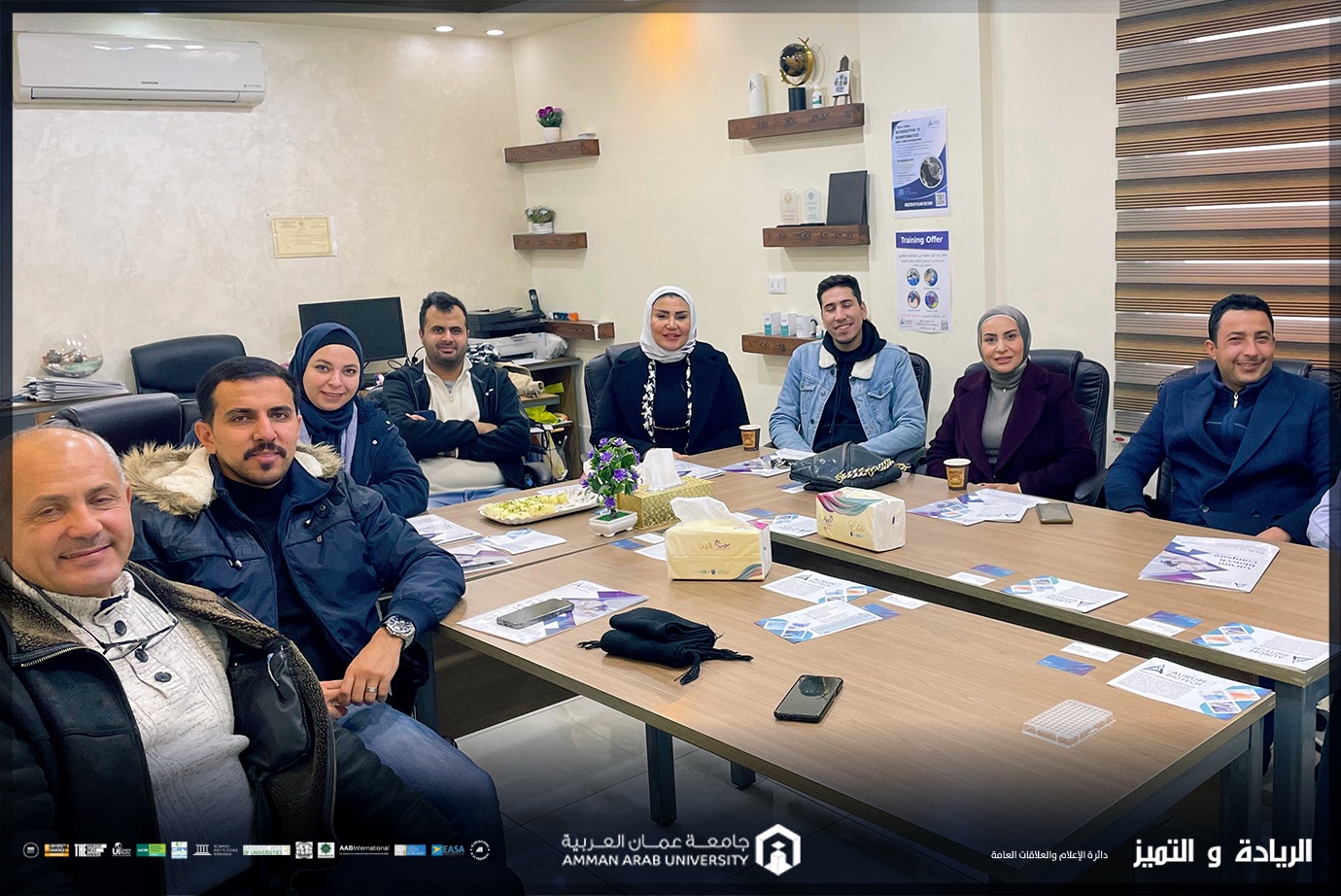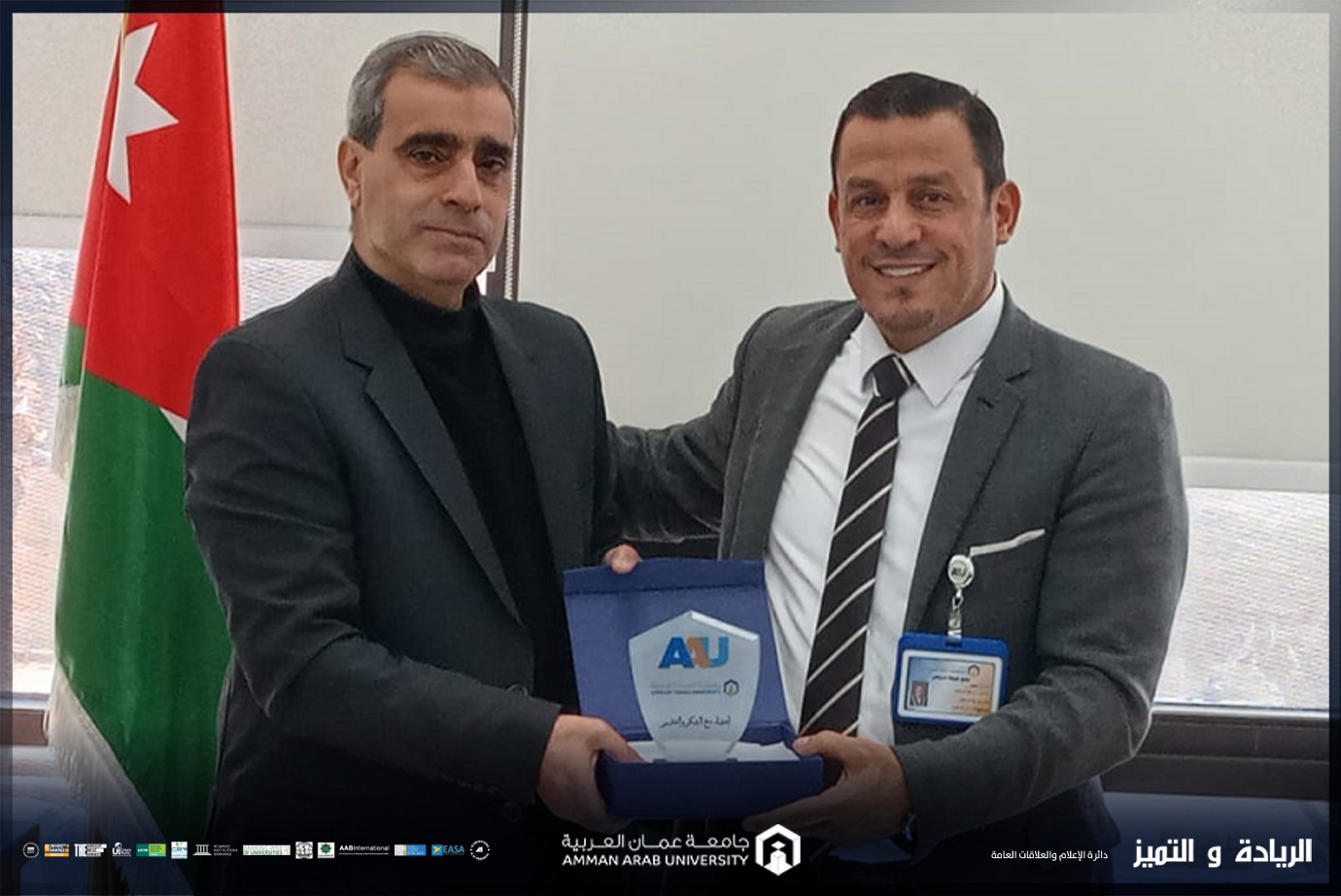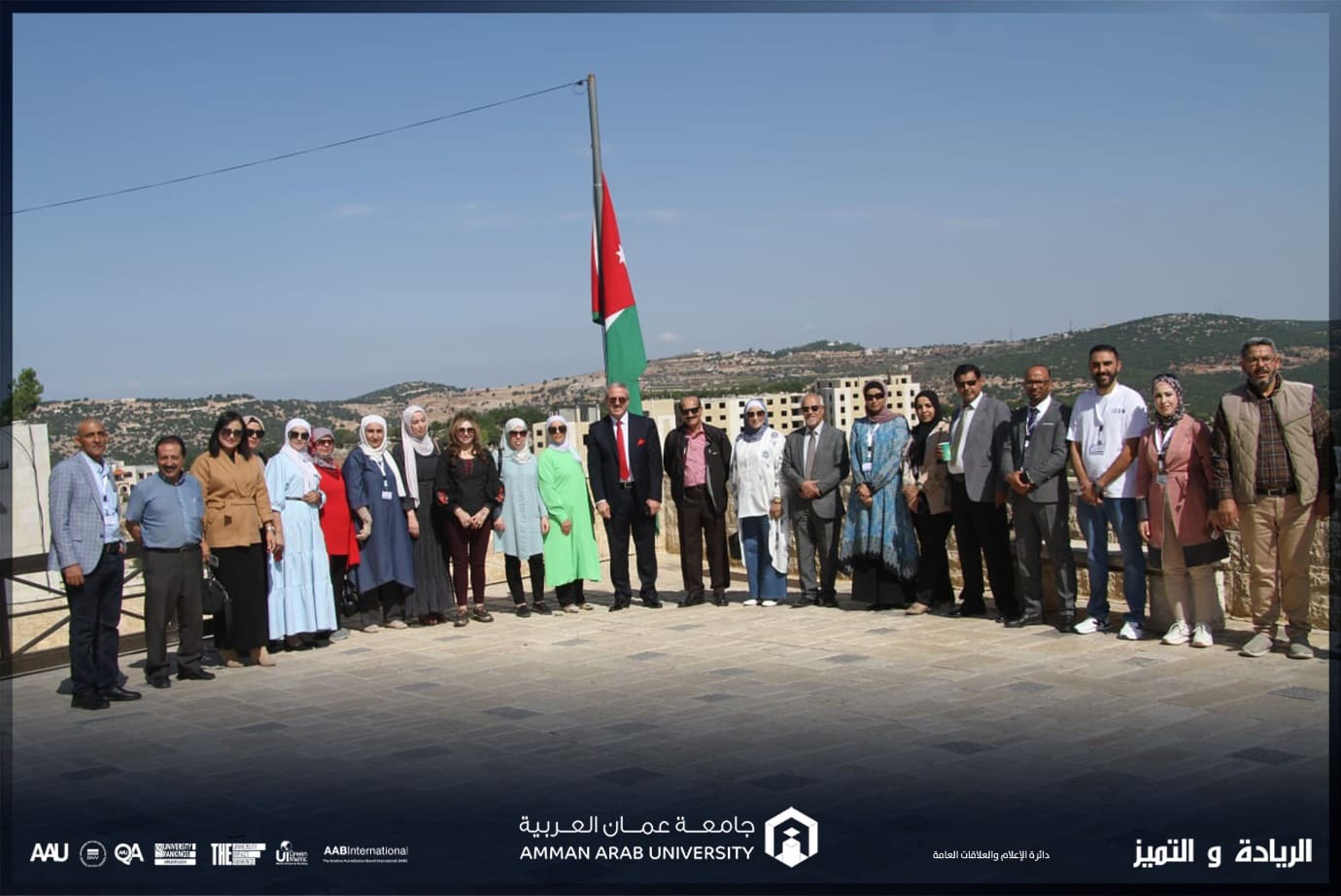
Conclusion of the Activities of the Human Trafficking Conference via the Internet at Amman Arab University
The activities of the international conference entitled (Human Trafficking via the Internet: Reality and Challenges) were concluded, which was held on Tuesday and Wednesday, October 17-18, 2023, under the patronage of His Excellency the Minister of the Interior, Mr. Mazen Al-Faraya, at Amman Arab University. Many researchers participated in the conference, in addition to local and international experts specialized in the phenomenon of human trafficking.
In his opening speech, Professor. Mohamad Al-Widyan, President of the University/President of the Conference, said that the world is witnessing a digital movement and an accelerating technological revolution and encountering many challenges, the most important of which is the technical challenge produced by the Fifth Industrial Revolution, focusing on artificial intelligence and reliance on technology that may lead to qualitative transition in human civilization.
The Chairman of the Conference Preparatory Committee, Professor. Dhaher Al-Qurashi, also indicated that (13) Arab and foreign countries participated in the conference, and international and local experts were summoned to enrich the conference. The conference also discussed several legal, technical, and religious aspects related to the crime of human trafficking. It also informed the participants of international and local experiences, which were presented at the conference activities and are directly related to the crime of human trafficking via the Internet. Experts and specialists also explained ways to diagnose the crime and ways to confront and prevent it. At the end of the activities, the following recommendations were concluded that could contribute to confronting the crime of human trafficking:
1- Working to improve the political, social and economic conditions of nations and societies; this contributes to avoiding the continuation of human trafficking crimes.
2- The existence of local, regional and international cooperation in following up on human trafficking crimes, especially via the Internet, and confronting and eliminating them.
3- Activating the law to prosecute people responsible for violations of workers’ rights and unlawful abuse of them 4- Activating the role of local community organizations and institutions in combating human trafficking crimes, and establishing community partnerships with official authorities to prevent the spread of any manifestation of these crimes.
5- Holding theoretical and practical training programs for those concerned with the crime of human trafficking via the Internet, in a way that improves their roles in combating this crime.
6- Creating curricula and curricula what can contribute to raising learners’ awareness of the crime of human trafficking in a gradual, sequential manner across successive educational stages.
7- Activating the role of families in following up on their children and monitoring their behavior in a way that contributes to rationalizing the use of the Internet and preventing access to sites that negatively affect children. 8- Employing the Qur’anic approach in confronting problems represented by people abusing one another, and preventing them in accordance with jurisprudential and legislative provisions.
9- Urging researchers, graduate students, and research centers to conduct scientific research that shows the reality of human trafficking and ways to confront it.
10- Exchanging successful experiences in confronting the crime of human trafficking between countries and societies, and amending them to increase their effectiveness.
11- Establishing clear policies for the use of technology in the educational and learning process and supervise them, and control the processes of cultural openness provided by technology.
12- Developing technical centers to follow up on students’ social networks and their forums related to the crime of human trafficking.
13- Monitoring films and series that contribute to the increase in human trafficking crimes and the spread of new types of them due to technological progress, and enacting laws and legislation that prevent their spread.



